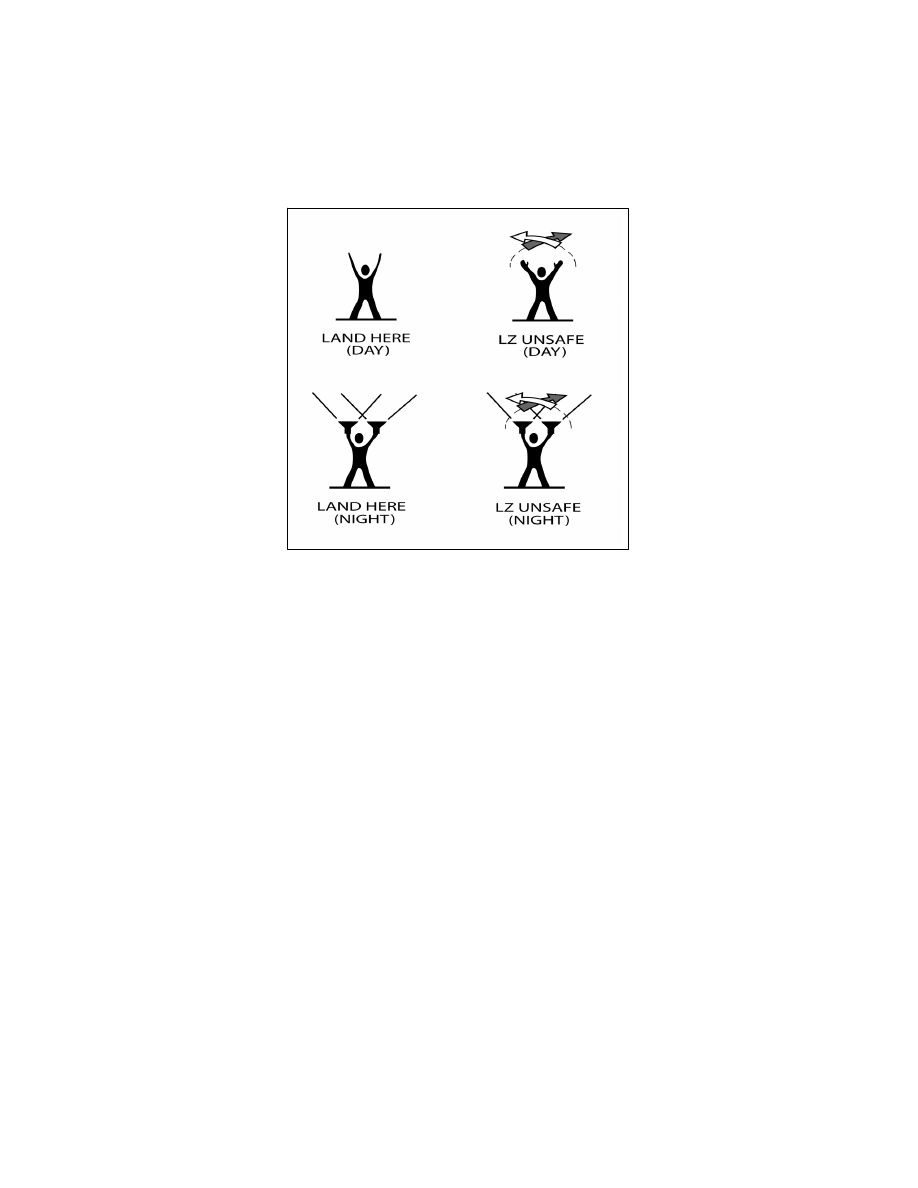
AIM
4/20/23
l. Hand Signals
1.
If unable to make radio contact with the HEMS pilot, use the following signals:
FIG 10
−
2
−
8
Recommended Landing Zone Ground Signals
m. Emergency Situations
1.
In the event of a helicopter accident in the vicinity of the LZ, consider the following:
(a) Emergency Exits:
(1)
Doors and emergency exits are typically prominently marked. If possible, operators should
familiarize ground responders with the door system on their helicopter in preparation for an emergency event.
(2)
In the event of an accident during the LZ operation, be cautious of hazards such as sharp and jagged
metal, plastic windows, glass, any rotating components, such as the rotors, and fire sources, such as the fuel
tank(s) and the engine.
(b) Fire Suppression:
Helicopters used in HEMS operations are usually powered by turboshaft engines, which use jet fuel. Civil HEMS
aircraft typically carry between 50 and 250 gallons of fuel, depending upon the size of the helicopter, and planned
flight duration, and the fuel remaining after flying to the scene. Use water to control heat and use foam over fuel
to keep vapors from ignition sources.
10
−
2
−
4. Emergency Medical Service (EMS) Multiple Helicopter Operations
a. Background.
EMS helicopter operators often overlap other EMS operator areas. Standardized procedures
can enhance the safety of operating multiple helicopters to landing zones (LZs) and to hospital heliports.
Communication is the key to successful operations and in maintaining organization between helicopters, ground
units and communication centers. EMS helicopter operators which operate in the same areas should establish
joint operating procedures and provide them to related agencies.
b. Recommended Procedures.
1. Landing Zone Operations.
The first helicopter to arrive on
−
scene should establish communications
with the ground unit at least 10 NMs from the LZ to receive a LZ briefing and to provide ground control the
10
−
2
−
18
Special Operations